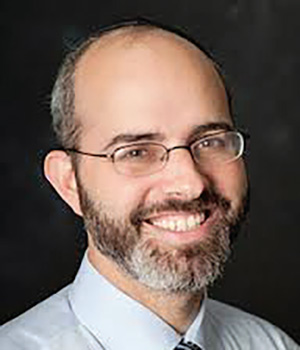
May these words of Torah serve as a merit le’iluy nishmat Menachem Mendel ben Harav Yoel David Balk, a”h, and Meira Chaya Nechama Beracha, a”h, bat Reb David Mordechai Fishel, sheyichyeh.
This week we learned Bechorot 29. These are some highlights.
A shul asked a kohen to duchen and he insisted that they pay him. Should the members answer amen to his brachot?
A shul did not have a kohen who would ascend to the front of the shul and recite birkat kohanim. One day, they noticed that there was kohen davening Shacharit with them. They begged him to duchen so they would merit to receive the special blessing of the priests. He agreed to do so on condition that they pay him. A talmid chacham came by and was told the story. The scholar raised the possibility that no amen should be recited to such blessings because of our daf.
Our daf teaches that Torah is to be taught for free. Moshe Rabbeinu taught the Torah for free and we too are to teach the Torah for free. The Mishnah extends this law to other mitzvot and teaches that if someone violated the law, the sages suspended his mitzvah fulfillment as a punishment. A person who takes money for judging: his judgement is reversed. Someone who takes money for testifying: his testimony is thrown out. If a man would take money for mixing the ashes of the parah adumah with spring water, the ashes would have the status of regular ashes and the water would have the status of cave water and it would not be able to remove impurity from a tamei meit. The talmid chacham argued that the rabbinic enactment should apply to the kohen who is duchening for pay. He should lose out on the mitzvah, his blessing should not be considered a blessing, and no one should recite amen to the blessing. Rav Zilberstein brought the question to Rav Chaim Kanievsky shlit”a.
Rav Chaim rules that the community can respond to the blessings uttered by the kohen. Rambam (Hilchot Tefillah 15:6) teaches that even though a kohen who has killed or worshipped idols is not to duchen, a kohen who does not have such major sins but is not careful with mitzvot, or there are rumors about his misbehavior, or he is known not to be honest in business, he is allowed to duchen. We are not to prevent such a person from ascending and blessing; there is a mitzvat asei on the kohanim to bless the nation with birkat kohanim. We would not tell a person to add to his sins and to neglect his obligation to recite birkat kohanim. Rambam (Halacha 7) adds: “Do not wonder and ask, “What gain will come from the blessing of such a person?” The effectiveness of the blessing is not dependent on the kohanim. It is dependent on Hashem. The verse (Bamidbar 6:27) declared, “And they are to place my name on the children of Israel and I will bless them.” The kohanim perform the mitzvah they were commanded to do and Hashem, in His compassion, blesses the Jewish nation as He wishes.” We see from the Rambam the primary source of the blessing in birkat kohanim is Hashem, and for this reason even a kohen with sins is to duchen. Our Gemara discusses a rabbinic enactment to sometimes suspend mitzvah fulfillment to encourage individuals not to illegally take money for the mitzvah. Since the essence of the blessing of the priests comes from Hashem and the rabbis allowed many sinful priests to recite the blessing, the rabbis certainly did not make their enactment for this case, and if a kohen is getting paid for blessing the community, his blessing is a suitable channel for Hashem to use for the blessings He sends down to the Jewish nation and the community can respond amen to the duchening. (Chashukei Chemed)
By Rabbi Zev Reichman
Rabbi Zev Reichman teaches Daf Yomi in his shul, East Hill Synagogue.













